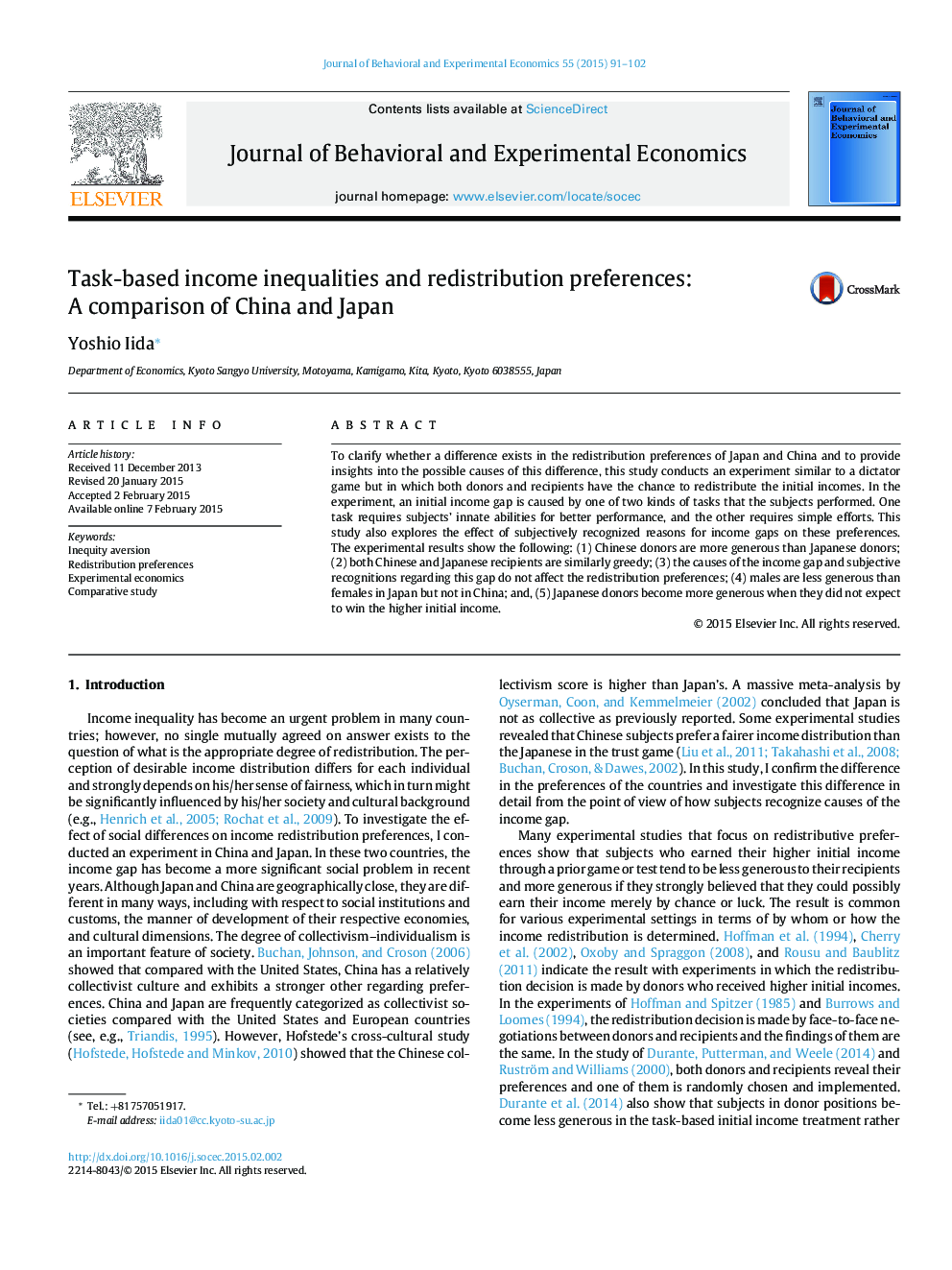| Article ID | Journal | Published Year | Pages | File Type |
|---|---|---|---|---|
| 881867 | Journal of Behavioral and Experimental Economics | 2015 | 12 Pages |
•I conducted a kind of experiment which focus on redistribution preferences in China and Japan.•Chinese donators are more generous than Japanese dictators.•Both Chinese and Japanese recipients are greedy to a similar extent.•The causes of the income gap and subjective recognitions regarding this gap do not affect the redistribution preferences.•Japanese donors become more generous when they did not expect to win the higher initial income.
To clarify whether a difference exists in the redistribution preferences of Japan and China and to provide insights into the possible causes of this difference, this study conducts an experiment similar to a dictator game but in which both donors and recipients have the chance to redistribute the initial incomes. In the experiment, an initial income gap is caused by one of two kinds of tasks that the subjects performed. One task requires subjects’ innate abilities for better performance, and the other requires simple efforts. This study also explores the effect of subjectively recognized reasons for income gaps on these preferences. The experimental results show the following: (1) Chinese donors are more generous than Japanese donors; (2) both Chinese and Japanese recipients are similarly greedy; (3) the causes of the income gap and subjective recognitions regarding this gap do not affect the redistribution preferences; (4) males are less generous than females in Japan but not in China; and, (5) Japanese donors become more generous when they did not expect to win the higher initial income.
